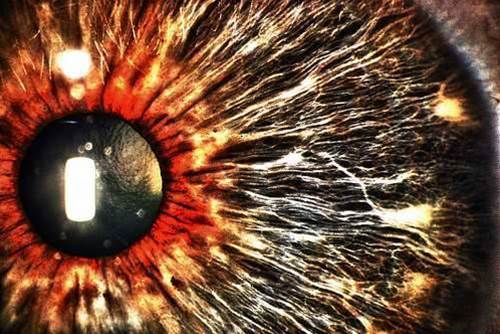Google's artificial intelligence research arm has been handed the keys to a database of one million de-identified eye scans collected by a UK hospital, in the hope it can train its algorithm to detect the early stages of eye disease.

London's Moorfields Eye Hospital has inked a five-year agreement with Google’s DeepMind business to design new software to speed up the analysis of the complex images.
Analysing detailed eye scans is a significant drag on a health professional’s time, and the kinds of software tools available on the market today cannot be relied upon to reach the same conclusions.
Moorfields says it collects roughly 3000 optical coherence tomography - a 3D scan of the layers making up the retina - images every week.
The DeepMind partnership aims to speed up the diagnostic process in order to maximise the number of treatable and preventable eye diseases that are caught in time for the doctors to make a difference.
Moorfields’ professor Sir Peng Tee Khaw warned the rate of sight loss is expected to double by 2050, with diabetes one of the fastest growing drivers of the disease.
"Our research with DeepMind has the potential to revolutionise the way professionals carry out eye tests and could lead to earlier detection and treatment of common eye diseases such as age-related macular degeneration,” he said.
DeepMind was founded by a group of London researchers in 2010, and bought by Google in 2014.
Co-founder Mustafa Suleyman said the group got together to see if AI could be used to solve global challenges.
He said detecting eye diseases as early as possible "gives patients the best possible chance of getting the right treatments”.
The hospital has strived to assure patients that their privacy will be protected through the study, even though UK privacy rules mean it doesn’t have to seek their permission to share de-identified datasets.
It has offered all patients the opportunity to opt out of the program, and says DeepMind will destroy the records as soon as the research is over.
The hospital insisted it will "rigorously ensure that no personally identifiable data is included in the database of scans”.
In Australia, Department of Health boss Martin Bowles has already touted the potential of using anonymised health data to find new solutions for the world’s health conundrums.
The federal health authority has begun analysing Medicare claims data to identify hotspots where the range of treatments doled out by clinicians vary the most.
However, the Commonwealth Privacy Commissioner has cautioned that de-identification can’t be treated as a silver bullet to privacy threats given the potential to re-identfy data.
But he said as long as organisations use best practice, de-identified data will not be deemed personally identifiable data under the Australian Privacy Act.







_page-0001.jpg&w=100&c=1&s=0)

.png&w=120&c=1&s=0) Tech in Gov 2025
Tech in Gov 2025
 Forrester's Technology & Innovation Summit APAC 2025
Forrester's Technology & Innovation Summit APAC 2025
 Integrate Expo 2025
Integrate Expo 2025
.png&w=120&c=1&s=0) Security Exhibition & Conference 2025
Security Exhibition & Conference 2025
 Digital As Usual Cybersecurity Roadshow: Brisbane edition
Digital As Usual Cybersecurity Roadshow: Brisbane edition





.jpg&h=271&w=480&c=1&s=1)





.jpg&h=140&w=231&c=1&s=0)



